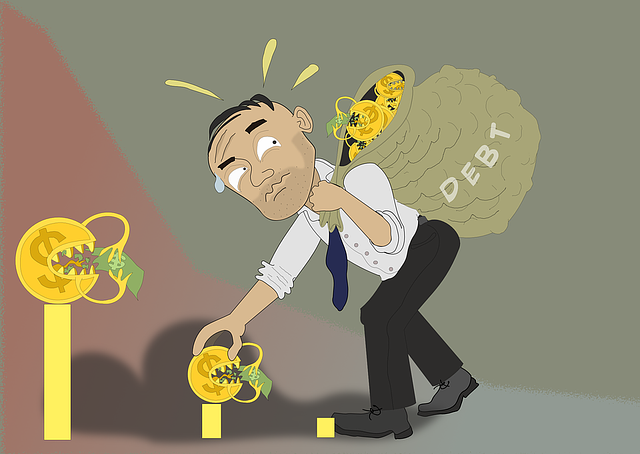
Image Source: 123rf.com
In today’s housing market, homeowners constantly search for clever ways to save money on their mortgages. One particularly enticing strategy on social media and financial forums has gained popularity: making biweekly mortgage payments instead of monthly ones. This approach promises to help you pay off your mortgage years earlier and save thousands in interest. While the math behind this hack seems straightforward, there’s a dangerous side that few discuss. Before you restructure your payment schedule, you must understand the potential benefits and the hidden pitfalls that could seriously damage your financial future.
1. The Biweekly Payment Promise
The biweekly mortgage payment strategy works like this: instead of making 12 monthly payments per year, you make 26 half-payments (every two weeks). This effectively results in 13 full monthly payments annually instead of 12. The extra payment goes directly toward your principal, potentially shortening your loan term by 4-8 years on a 30-year mortgage and saving tens of thousands in interest.
For example, on a $300,000 mortgage with a 6% interest rate, traditional monthly payments would cost about $1,799 per month. Over 30 years, you’d pay approximately $347,640 in interest. With biweekly payments, you’d pay $899.50 every two weeks. This approach could pay off your mortgage about 4 years earlier and save roughly $62,000 in interest.
The math is compelling, which explains why financial influencers enthusiastically promote this strategy. Who wouldn’t want to save $62,000?
2. The Hidden Costs Many Overlook
What promoters of this hack often fail to mention is that many mortgage servicers charge fees to process biweekly payments. These can include enrollment fees ($300-$500), transaction fees ($2-$5 per payment), or monthly service charges ($5-$9). Over the life of your loan, these fees can add up to thousands of dollars, significantly reducing your supposed savings.
Some lenders don’t even apply your biweekly payments immediately. Instead, they hold the first half-payment until they receive the second half, then apply them together as a single monthly payment. This eliminates much of the interest-saving benefit of the biweekly strategy.
According to the Consumer Financial Protection Bureau, complaints about mortgage servicers mishandling biweekly payment programs are common. Many consumers discover their payments aren’t being applied as promised.
3. The Opportunity Cost Trap
Perhaps the most overlooked aspect of the biweekly payment strategy is the opportunity cost. That extra money you put toward your mortgage could potentially earn higher returns elsewhere.
With mortgage rates historically lower than average investment returns, putting extra money into retirement accounts, high-yield savings, or even paying down higher-interest debt often makes more mathematical sense. The S&P 500’s average annual return has been approximately 10% over the long term, while mortgage rates have recently hovered around 6-7%.
You’re sacrificing liquidity and potentially higher returns by locking extra funds into your home equity. This opportunity cost can exceed the interest savings from biweekly payments, especially if you’re in the early stages of your career.
4. The DIY Alternative That Actually Works
If you’re attracted to the biweekly payment concept, there’s a smarter way to implement it without fees or servicer complications. Simply take your monthly payment, divide by 12, and add that amount to each monthly payment, clearly indicating it should be applied to principal.
For example, with a $1,799 monthly payment, you’d add $149.92 each month ($1,799 ÷ 12). This achieves the same mathematical benefit as biweekly payments without any special enrollment or processing fees.
Most importantly, you maintain control and flexibility. If financial hardship strikes, you can skip the extra payment without penalty, unlike formal biweekly payment programs that may lock you into contractual obligations.
5. When Accelerated Payments Make Sense (And When They Don’t)
Accelerated mortgage payments make the most sense when:
- You’re nearing retirement and want to eliminate debt
- You have no other higher-interest debt
- You’ve already maxed out tax-advantaged retirement accounts
- You have ample emergency savings
- You value peace of mind over mathematical optimization
They make less sense when:
- You have other high-interest debt (credit cards, personal loans)
- You haven’t established emergency savings
- You’re not taking full advantage of retirement account matches
- You’re in a high-growth phase of wealth building
According to Bankrate’s financial experts, the decision should be based on your complete financial picture, not just mortgage interest savings.
The Freedom Factor: What Financial Influencers Won’t Tell You
The most valuable currency in personal finance isn’t dollars—it’s options. The rigid structure of biweekly payment programs can limit your financial flexibility precisely when you might need it most. Maintaining control over when and how much extra you pay toward your mortgage preserves the freedom to adapt to life’s inevitable changes.
Remember that your home is just one part of your financial portfolio. A truly sophisticated approach balances mortgage acceleration with other financial goals, creating a diversified strategy that can weather economic changes and personal circumstances.
Have you tried biweekly payments or another mortgage acceleration strategy? What results did you see, and would you recommend it to others considering their options?
Read More
Save Money on Your Mortgage by Negotiating These Fees
What Does It Mean to Recast Your Mortgage?

Travis Campbell is a digital marketer/developer with over 10 years of experience and a writer for over 6 years. He holds a degree in E-commerce and likes to share life advice he’s learned over the years. Travis loves spending time on the golf course or at the gym when he’s not working.


